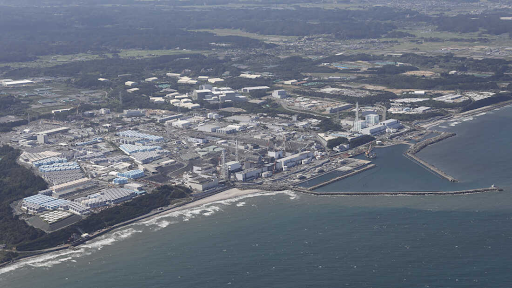
In a move that has ignited intense debate, Japan has commenced the release of treated radioactive water from the decimated Fukushima nuclear power plant into the Pacific Ocean. This polarizing decision swiftly prompted China to impose a comprehensive ban on all aquatic imports from Japan, heightening geopolitical tensions in the region. The Chinese Customs Bureau expressed “high concern about the risk of radioactive contamination” associated with Japanese food and agricultural products. This clash underscores the complex intersection of environmental management, economic interests, and diplomatic relations.
Japan’s green light for this release was granted two years ago, and the recent approval from the United Nations’ nuclear watchdog substantiated the plan. The discharged water will play a pivotal role in the gradual decommissioning of the Fukushima Daiichi plant, a site devastated by a catastrophic tsunami in 2011. Tokyo Electric Power (Tepco), the operator of the plant, confirmed that the release had begun without any discernible abnormalities.
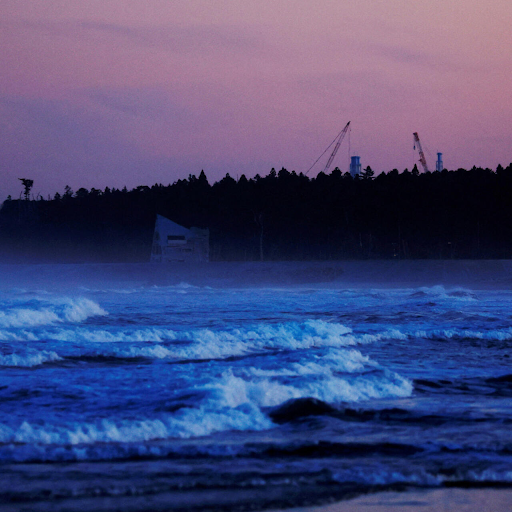
However, China vehemently opposes the action, asserting that Japan has not provided sufficient evidence to assure the safety of the discharged water. The Chinese Foreign Ministry expressed concern that Japan’s motivations could have a detrimental impact on global populations, emphasizing that “selfish interests” should not prevail over global well-being. This exchange of critical statements between the two nations illustrates the deep-seated concerns and differing perspectives regarding the environmental implications of such a release.
Japan, backed by the International Atomic Energy Agency (IAEA), maintains that the released water poses minimal risk to both humans and the environment. Tokyo’s contention is based on the IAEA’s assertion that the anticipated impact of the water on the ecosystem would be negligible. Japanese Prime Minister Fumio Kishida called for scientific discourse and urged China to lift the import ban, emphasizing the importance of evidence-based decision-making.
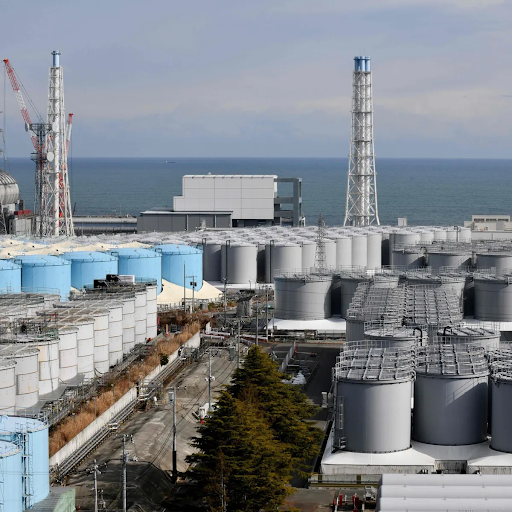
The economic stakes are substantial. In 2022, Japan exported approximately $600 million worth of aquatic products to China, making it the most significant market for Japanese aquatic exports, with Hong Kong following suit. These exports collectively represented 42% of Japan’s aquatic exports, highlighting the potential economic repercussions of China’s ban on Japanese seafood.
The Fukushima Daiichi plant’s catastrophic destruction in 2011, triggered by a powerful earthquake and ensuing tsunami, resulted in meltdowns in three reactors. The release of the first batch of water, equating to about three Olympic swimming pools’ volume, will unfold over a span of approximately 17 days. Test results by Tepco revealed that the discharged water contains up to 63 becquerels of tritium per liter, well below the World Health Organization’s safe drinking water threshold of 10,000 becquerels per liter.
Despite these assertions of safety, Japanese fishing groups, which have borne the brunt of radiation-related reputation damage, remain resolutely against the release. This opposition underscores the ongoing anxieties within affected communities and the broader societal consequences of the Fukushima disaster.
International reactions echo the complexity of the issue. Hong Kong and Macau swiftly imposed their bans on Japanese seafood imports, mirroring China’s stance. Meanwhile, South Korea’s Prime Minister Han Duck-soo indicated that import bans on Fukushima-related products would persist until public concerns were allayed.
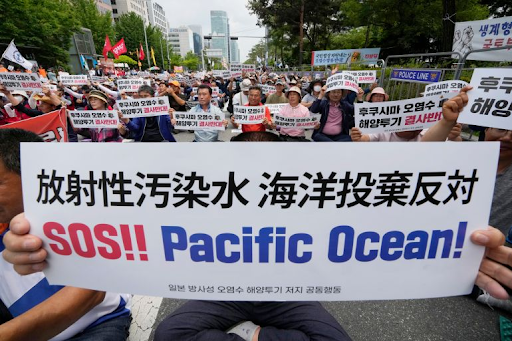
Protests have arisen across the region, reflecting public sentiments and concerns. Activists in Hong Kong held signs depicting the head of the IAEA as the devil, decrying Japan’s “irresponsible, illegal, and immoral” actions. South Korean police arrested demonstrators who entered the Japanese embassy in Seoul, despite the government’s endorsement of the release’s technical aspects. North Korea’s foreign ministry also vehemently condemned the action as a “crime against humanity.”
In Japan itself, protesters gathered outside Tepco’s headquarters in Tokyo, holding placards that read “Don’t throw contaminated water into the sea!” The anger is fueled by the enduring repercussions of the Fukushima disaster. As Jun Iizuka, a protester, affirmed, “The Fukushima nuclear disaster is not over.” He vowed continued resistance against the long-term release of contaminated water.
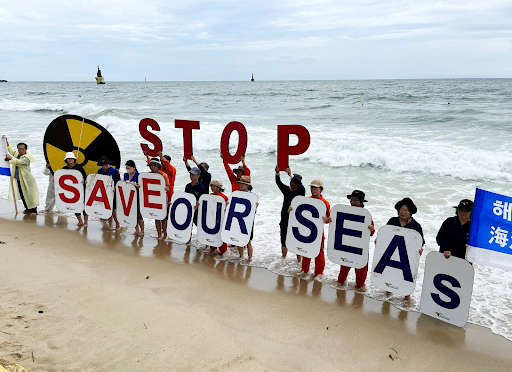
As the release continues over the estimated span of 30 years, Japan plans rigorous monitoring around the release area, with weekly results publication. This multifaceted issue encapsulates the delicate balance between scientific analysis, economic interests, environmental preservation, and international relations. The global response to Japan’s Fukushima wastewater release serves as a poignant reminder of the interconnectedness of environmental challenges and the complexities they bring to the forefront of international discourse.





